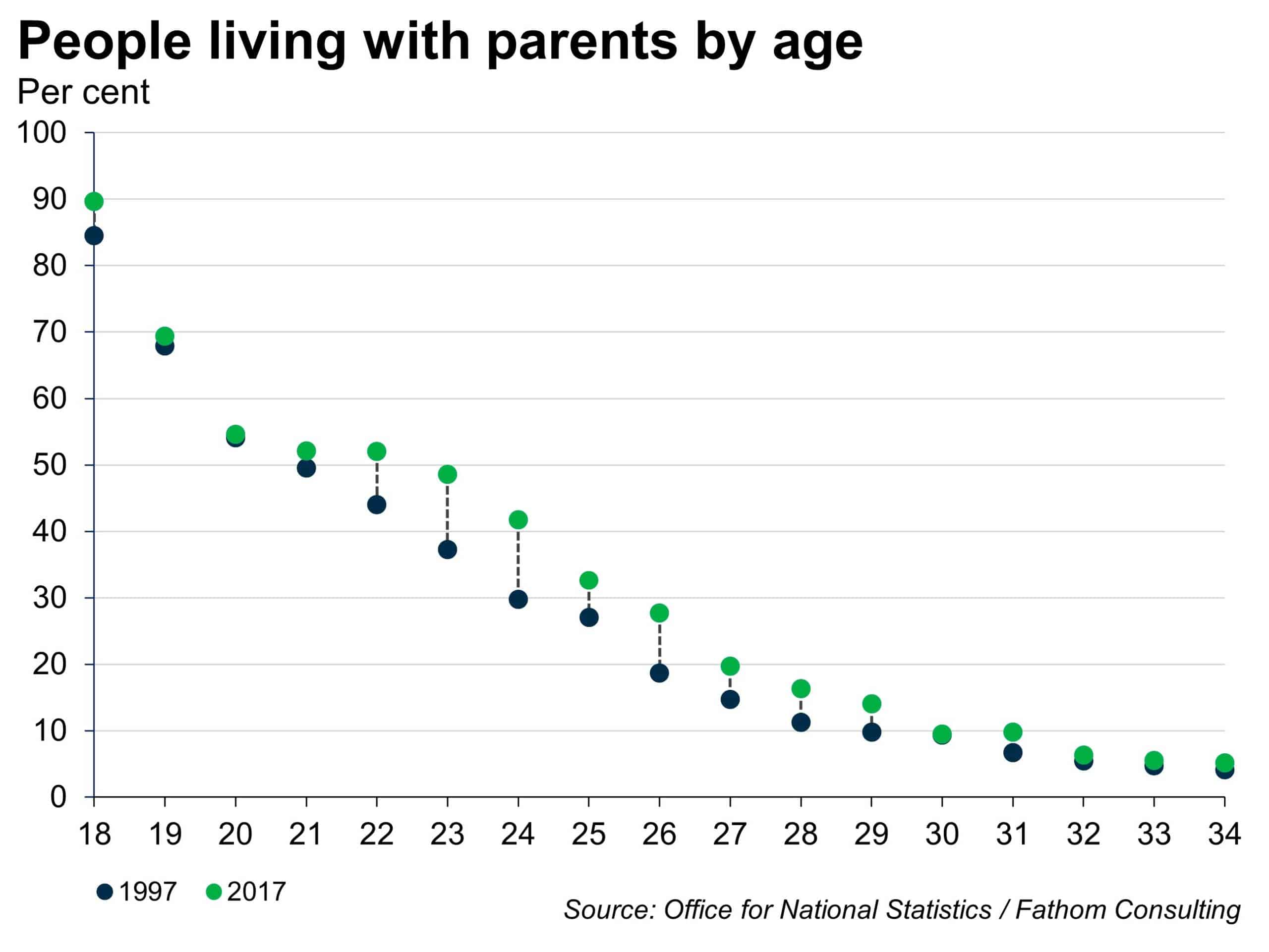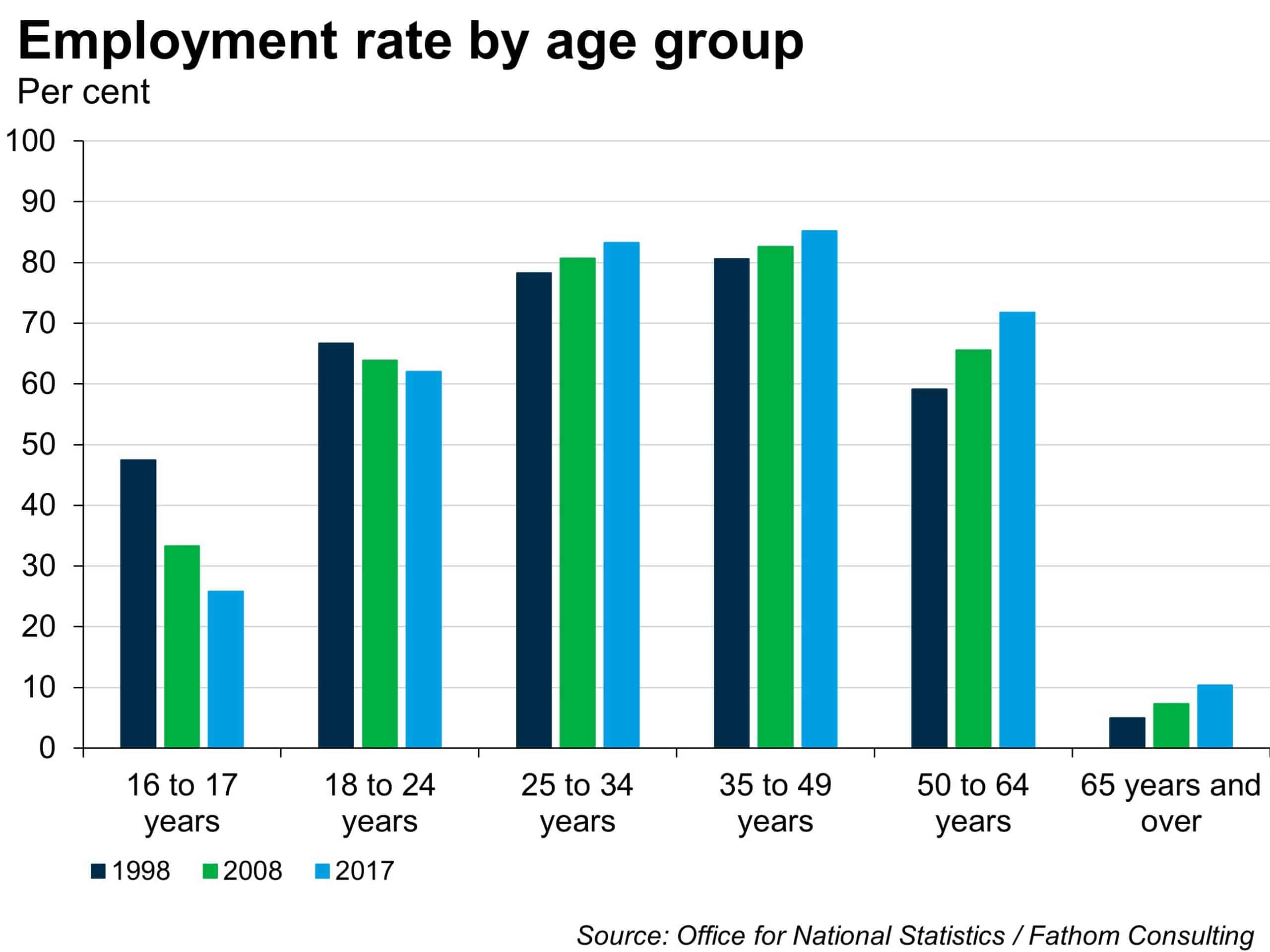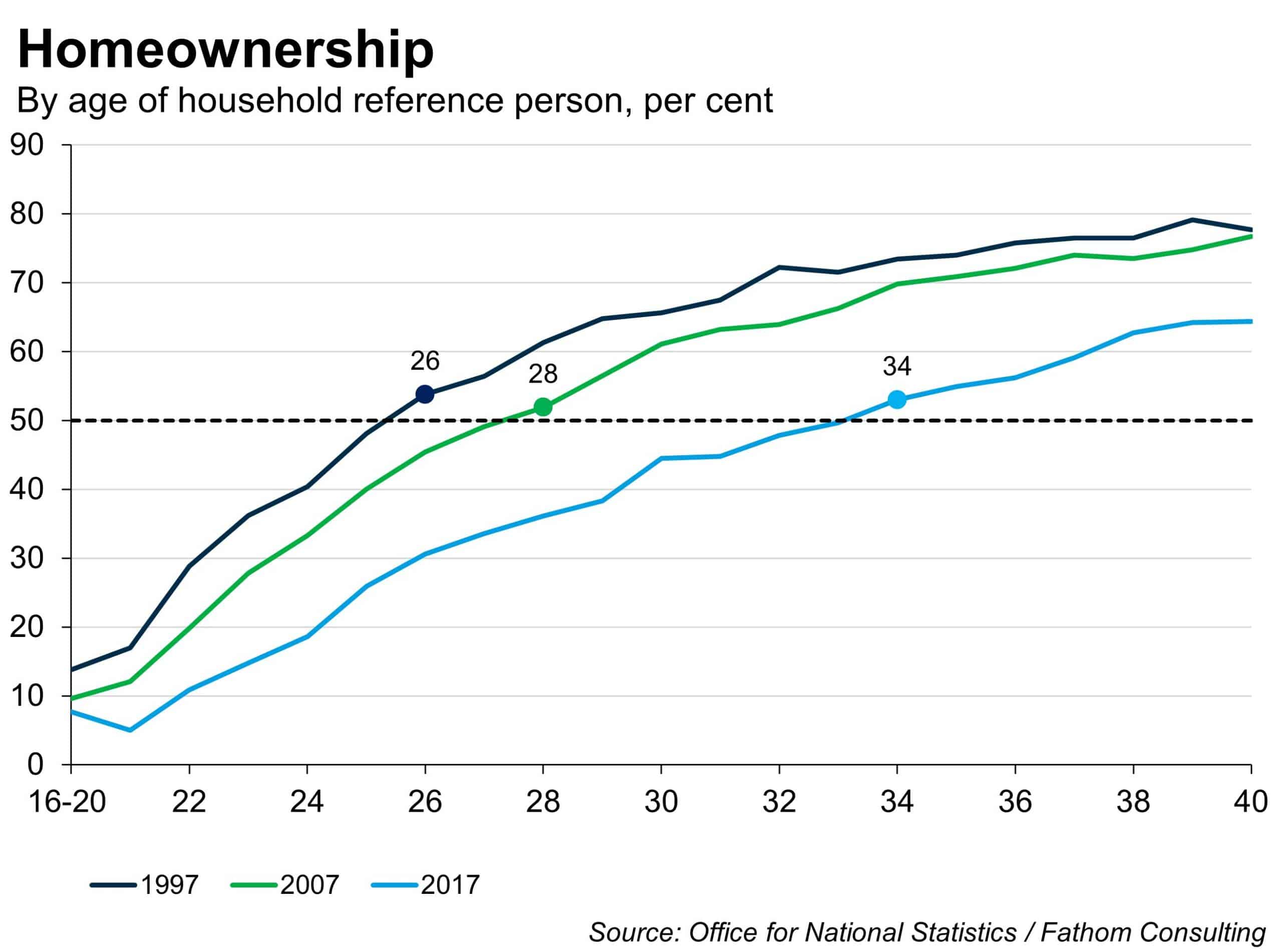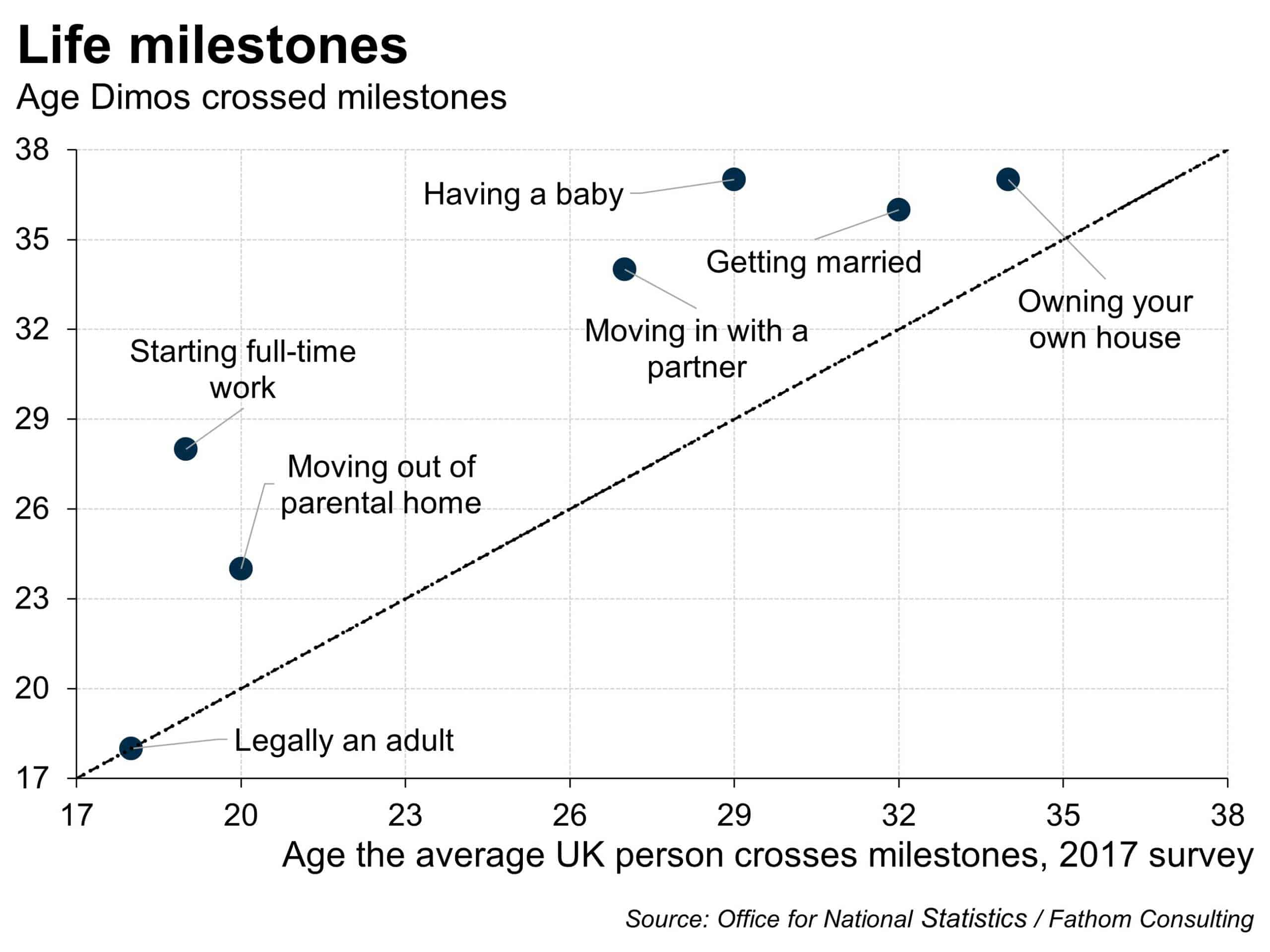A sideways look at economics
The past seven months have been busy for me on a personal level. My partner and I finally got married at the end of last year, and having just completed the purchase of our first home we are imminently expecting our first child. Within this frenzy, I celebrated my 37th birthday, which naturally was overshadowed by the above developments, although I did manage to blow out a few candles with the help of my two-year-old niece. Indeed, this year my birthday felt more like a reflection than a celebration: a reflection on how my life’s significant milestones seem to have arrived late and all at once, and on whether my timeline corresponds with the average person’s. Am I a late bloomer? Or has society changed so much that my experience is now the norm? To answer this question, I turn to the ONS.
The ‘Milestones: journeying into adulthood’ dataset produced by the Office of National Statistics (ONS) dataset published in 2019, holds an immense breadth of statistics to answer my question. For a start, living with parents is now a much more common arrangement for adults aged 21–29 than it was 20 years ago, according to an Intergenerational Foundation report which used this dataset. This statistic is not quite what it seems, however. It is a widespread belief that millennials, as a cohort, have taken longer to acquire the trappings of adulthood than previous generations; more young people now attend university, which means that millennials have tended to begin working later than was the case for previous cohorts, and thus to take longer to build up wealth and start to be financially independent. Digging deeper, however, while the average age of leaving full-time education has risen over the past 20 years, in 2019 it was still the case that the proportion of 18-24-year-olds in full-time work comfortably exceeded 50% (62% to be exact) of all people in that age group. This is because it’s still only about a third of 18-year-olds who go on to university each year, despite the enormous increase in university places which has occurred in the past few decades. Those extra places have mainly been occupied by students staying for longer, with women staying for an extra year-and-a-half compared with men. So, it is not so much that more young adults are continuing to live at home with their parents than 20 years ago, but rather that roughly the same amount of people are staying with their parents, but they are studying for a longer time. And roughly the same amount of people as 20 years ago are starting their working life at exactly the same point as before. I fall into the former cohort.


Another interesting observation coming out of the ONS dataset is that the ages at which young people typically achieve key adult milestones have become much more spread out. In 1997, there was relatively little difference between (a) the earliest age at which more than 50% of the population was living with a romantic partner (about 27 for both men and women); (b) the average age of a first-time parent (27); (c) the average age of a first marriage (27 for a woman and 30 for a man); and (d) the youngest age at which more than 50% of the population were home-owners (26). Back then one could argue that 27 was the age at which one became an adult, if measured by life milestone metrics. About 20 years later, although the average ages at which most of these things occur has gone up, they have done so at different rates – which means there are now bigger gaps between when they tend to happen. The ONS data shows that the age at which over half of young adults are living with a romantic partner is still 27 and has not actually changed compared with 20 years ago. The average age of a first-time mother has risen by two years, to 29, while the average age of a first wedding has risen by about three years for men and four years for women, to 33 and 31 respectively. Most dramatically of all, the earliest age at which over 50% of people own their own property has increased to 34 (i.e., it’s gone up by 8 years). You could almost make the argument that over the course of just 20 years the age of ‘real’ adulthood has become impossible to triangulate with a high degree of certainty.

I can associate myself with the wider spread in life milestones. The difference is that my life milestones fall more sporadically initially, while they pour down towards the end of the timeline. If you are looking for a case study of someone staying unmarried for longer, renting accommodation for longer rather than owning, and also waiting for longer before having children, then I am the person you are after. After a late start, entering the labour market nine years later than the average person, I managed to close the gap to three years on the last milestone, homeownership. There are explanations: first, part of my university time was spent in Greece where undergraduate studies are typically four years and not three, and after that I had a year of conscripted army service. I then studied for a master’s and a doctorate in the UK, which added another four years. (Yes, I had a good time as a BSc, MSc and PhD student, but please don’t imagine I spent the nine years having the kind of marathon parties you see ad nauseam in God knows how many instalments of the American Pie movies. The message here is, don’t start a PhD if you want to party more; and if you do start a PhD, be prepared to spend more time watching American Pie movies than partying). Then, putting on a late burst of speed, I managed to shoehorn three milestones into one year: I got married, bought a house and am about to have a kid, all in less than 12 months.
There you have it, that’s where my life milestones sit in the grand scheme of statistics. I wouldn’t change a thing, and I am happy with all the choices that made me a late bloomer. After all, the life milestones discussed here are the product of statistics focusing on averages; while the real world has become a bit more inclusive of the non-average life than it was 20 years ago. And cheers to that.

More by this author